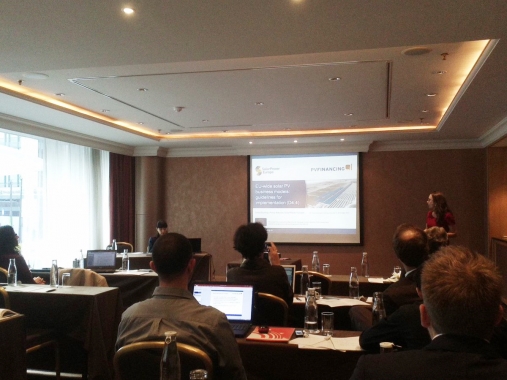How to encourage investment in solar energy
PV Financing European Implementation Guidelines are published
Brussels, 18 November 2016 | Published in Energy, Economy
Within the PV Financing project, Housing Europe has contributed to highlight the specific nature and potential of the sector as beneficiary of the investment in solar energy. European guidelines to help investors, public authorities and housing providers to develop a business case have just recently been published.
Social housing providers are ideally placed to invest in solar energy as they have low costs of capital by virtue of either being public or quasi-public bodies receiving public support of some kind such as direct subsidies or subsidised loans for renovation, for instance, in France and Germany or using a dedicated guarantee fund for all types of activities (Netherlands) or dedicated mortgage based loans (like in Denmark) and long-time horizons.
The two main drivers for the use of photovoltaic panels within the social housing sector are:
- Economic arguments – the financial return on investment
Here the power is sold to the tenants at a price lower than the retail price of electricity. Energy from PV is usually sold to the grid and benefit tenants in the form of net metering. Another option is the sale of power directly to tenants by the energy cooperative created by the social housing company. The price is usually lower than the retail price. In both cases this has a positive impact on the purchasing power of tenants.
- Energy performance of Building regulations requirements
Mandatory standards that social housing providers have to achieve, often more ambitious than for the rest of the building stock for the global energy performance of new built dwellings are generally applied to all type of buildings. Thus, from 2020, all new buildings in the EU will have to be nearly zero. In most of the cases this means that not only homes will have to be extremely well insulated, but that they will have to compensate the energy for heating and hot water by using renewable energy or efficient systems like heat pumps.
More generally, the use of renewable energy in the social housing sector might gain momentum with the renewed energy and climate ambition of EU and national policy makers and the willingness of social housing providers to develop an integrated and optimal solution to reduce CO2 emissions. Using PV is also a way to achieve zero energy homes through a complete renovation à la Energiesprong (see the website of the Transition Zero project for more information).
PV Financing also organised a workshop with the financial sector in order to discuss funding opportunities.